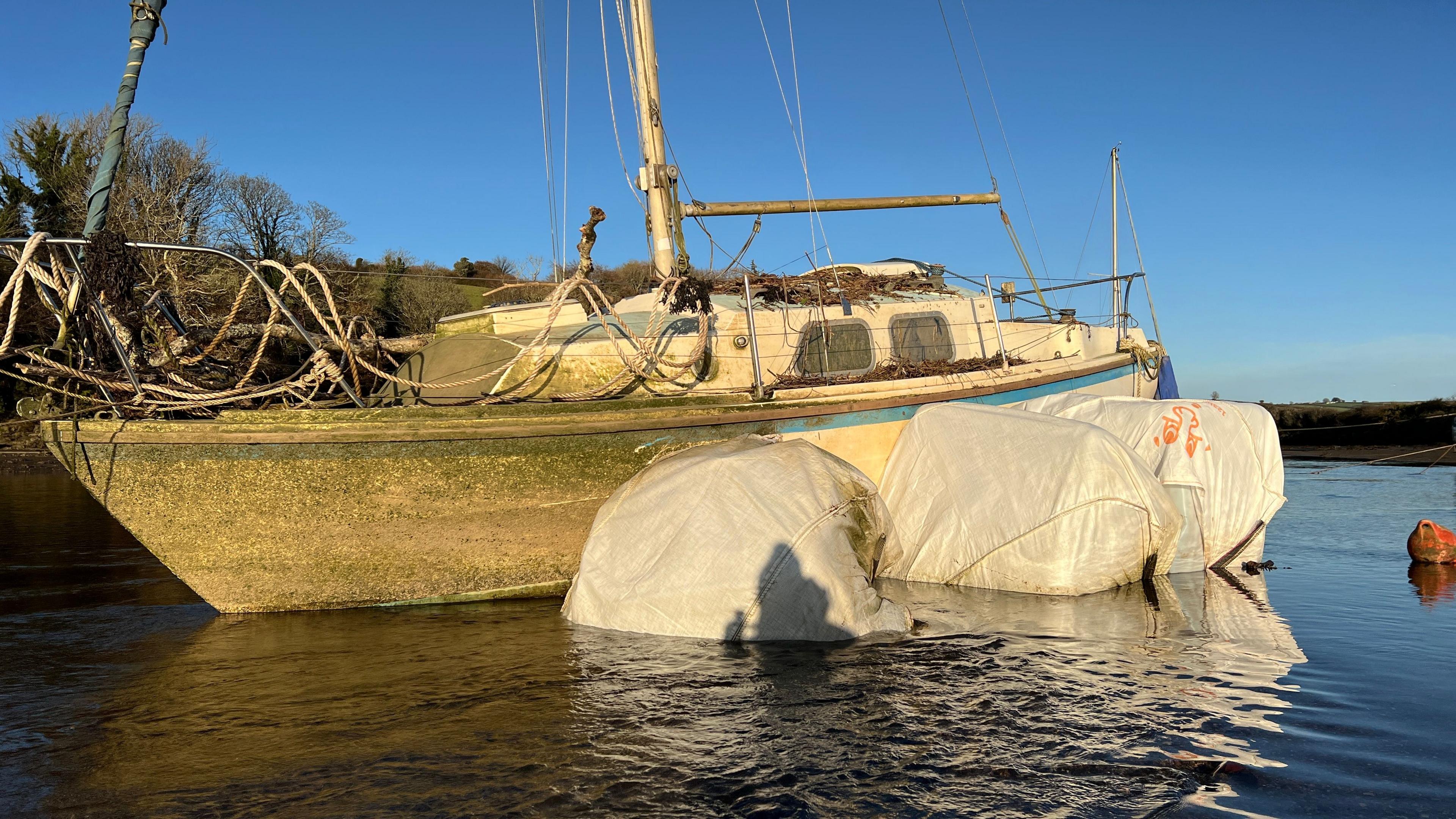A presentation delivered by Dr Corina Ciocan at a workshop in Chichester Harbour on the effects of GRP on marine life. Download PDF File Here
Plastic fibres stunt growth in mussels by more than a third – here's why this is a concern A study shows that exposure to polyester microfibres inhibits growth in mussels. https://theconversation.com/plastic-fibres-stunt-growth-in-mussels-by-more-than-a-third-heres-why-this-is-a-concern-201985 Plastic pollution poses a threat to marine wildlife. Th...
The University of Brighton is running three training workshops in April; one on water sampling, one on photo documentation and the last on blog writing. They have a maximum of 15 places on each workshop training is free. The data collected will be stored, and made publicly available on an open access database as part of a citizen science approach w...
On Jan 31st 2023, BeachPeople (an ocean sports club based in Sandbanks, Dorset) arranged a meeting between Cllr Mark Anderson of Bournemouth, Christchurch and Poole Council, Poole Harbour Commissioner Lee Hardy, ruth Barden and Natatlie poulter both from Wessex Water and Dr Corina Ciocan from Birghton University.The aim of the meeting was to unders...
According to a recent survey, there are an estimated six million boats in the EU alone, 95% of which are made of GRP (glass reinforced plastic). Every year, around 1-2% (60,000-120,000) of these boats reach the end of their useful life. Of these, only 2,000 are recycled, while 6,000-9,000 are abandoned. Recycling old boats is an expensive business,...
Warnings have been given about the environmental impact of glass fibre boats sinking in Poole Harbour. At a meeting of BCP Council recently, resident Phil Hanchett called on BCP Council to support a campaign which aims to collect the sunken vessels in the harbour. Speaking to councillors at the full council meeting in November, he said: "Following ...
On the 16th November 2022, BeachPeople (an ocean sports club based near Sandbanks in Dorset) raised the following question at the Bournemouth Christchurch and Poole (BCP) monthly cabinet meeting: Following a recent study in Chichester Harbour it was found that derelict glass fibre boats do not biodegrade; rather they degrade into strands...
Microscopic analysis of oysters, mussels and sediment from Chichester Harbour has uncovered a dizzying number of glass fibres linked back to boatyards and derelict vessels. A derelict GRP boat. Credit: Boatbreakers.com The 'really worrying' findings by University of Brighton researchers who undertook studies off the coast of Hampshire and West Suss...
New initiative to look at the rise in abandoned boats - Yachting Monthly The number of abandoned boats around the coasts of the UK and Europe is growing. Now a new initiative is to look at the scale of the problemhttps://www.yachtingmonthly.com/news/new-initiative-to-look-at-the-rise-in-abandoned-boats-88288 The scale of boat dumping around the UK ...
It's been called the fly-tipping of the maritime world. Hundreds of plastic boats are dumped on foreshores and tidal creeks around Devon and Cornwall. The problem is costing authorities thousands of pounds, harming the environment and can be seen from space but dealing with it has, in some cases, become "torturous". Sinking into the mud of Hooe Lak...
It's the elephant in the cabin, the big question that's been looming for decades: 'What do we do with old GRP boats?' writes Nic Compton.Anyone who has been for a beach walk in popular boating areas in the UK can't help but have noticed the growing number of abandoned boats accumulating on the foreshore or collecting moss up some leafy creek.Most b...
